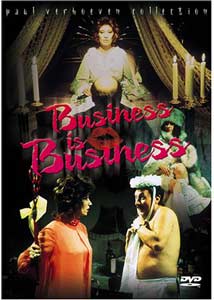Werckmeister Harmonies
 It is fascinating how some films with long takes display such intimacy, such as the works of Hou Hsiao-hsien, while others, such as Alfonso Cuaron's Children of Men, create a vastness that is simultaneously cosmic and clear, each director layering the depth of their compositions over their framing. Still, few films are as affecting in their cinematic magnitude as Bela Tarr's Werckmeister Harmonies (2000), as it alternately comments upon the inevitability of revolution for its world-weary patrons and the lingering repercussions that psychologically await them.
It is fascinating how some films with long takes display such intimacy, such as the works of Hou Hsiao-hsien, while others, such as Alfonso Cuaron's Children of Men, create a vastness that is simultaneously cosmic and clear, each director layering the depth of their compositions over their framing. Still, few films are as affecting in their cinematic magnitude as Bela Tarr's Werckmeister Harmonies (2000), as it alternately comments upon the inevitability of revolution for its world-weary patrons and the lingering repercussions that psychologically await them.In a small Hungarian town, the natural order is thrown aside as foreigners, a circus bearing a dead whale, and an extreme frost blanket the once peaceful town. Gradually this disruption becomes more than just murmurs, shifting to a more rebellious insurgency that threatens violence and the promise of restoring quietude once more to the natural order. Meanwhile, Janos Valuska (Lars Rudolph) is the town's postman but also their idiot savant, and the film blurs whether or not the constellation of peace that he dreams about in the beginning can exist outside of his distinction of reality. As it stands, much of this film's core can be found in the title of author Laszlo Krasnahorkai's The Melancholy of Resistance, which serves as the basis for Werckmeister Harmonies. Order and resistance are twinned, and which wins out is a subjective decision that all of us must process for ourselves.
Everyone already knows about the film's composition (140 minutes in 39 separate shots), so what is fascinating is how these moments both stand alone and build to crescendo with the storming of a hospital, wherein angry rioters' violence exists as a counterpoint to the inertia that grounds so many of their lives. Still, the confrontation ends with something akin to a spiritual awakening, a moment of quiet repose and reflection in the midst of such unmistakable degradation and soullessness, and these are the counterpoints that give the film its endless power. The rioters come upon a helpless elderly man, and his simple resignation to his fate disturbs them similarly to the way it disturbs us. Here and elsewhere the film's score of piano and violins swell up, and Tarr uses it sparingly, but never less than effectively.
One of the singular gems of this decade, Werckmeister Harmonies is hypnotic in its structure, its story, its framing, and its contribution to the cinematic world. Thoroughly entrancing, it is a demanding view, but one where, if you surrender to it, you come out having witnessed a singular visionary at work.
Werckmeister Harmonies: 10/10




